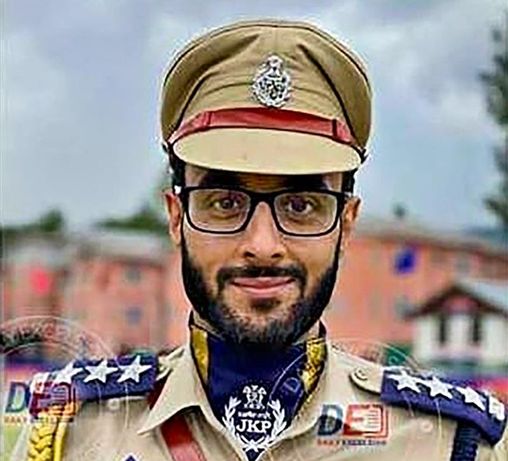Fatimah Ali’s emotional recount of her husband’s bravery highlights the profound strength needed to honor a fallen hero while raising their son.
By Irfan Bashir
In a small room bathed in sunlight, Fatimah Ali cradles her one-year-old son, Ali Ashar, as she grapples with a profound mix of sorrow and pride. Her husband, Deputy Superintendent of Police Humayun Bhat, was recently awarded the prestigious Kirti Chakra posthumously, a recognition of his “rare courage” during a gunfight with terrorists in Kokernag, South Kashmir, last September.
The Kirti Chakra, India’s second-highest peacetime gallantry award, honors Bhat’s ultimate sacrifice. “I am immensely proud of the sacrifice made by my husband,” Fatimah says, her voice breaking as she speaks.
Humayun Bhat, just 32 years old, was one of four brave officers who lost their lives in the fierce encounter on September 13, 2023. Alongside him were Colonel Manpreet Singh, Major Ashish Dhonchak, and Sepoy Pardeep Singh, all of whom made the supreme sacrifice in the line of duty. The mountainous terrain of Kokernag, South Kashmir, became the final battleground for these valiant men.
On Friday, two senior officers from the Jammu and Kashmir police visited Fatimah and her son, offering their support and condolences. The Kirti Chakra award will be presented at an investiture ceremony by President Draupadi Murmu, though the date is yet to be announced.
In her home, a large portrait of Humayun dominates the room, a constant reminder of the man who was more than just a police officer. “He was my partner, my friend, and the father of our son,” Fatimah reminisces, her words heavy with emotion. Little Ashar, looking up at his father’s portrait, moves his lips, possibly trying to say “daddy,” a moment that fills Fatimah with both joy and deep sorrow.
Determined to raise her son with the same values of bravery and integrity that Humayun embodied, Fatimah recently accepted a position as an Assistant Professor at Kashmir University, a role provided to the Next of Kin (NoK) of fallen officers. Despite her new title, she remains resolute in her identity. “I don’t wish to be called the widow of Humayun. My marriage was the finality of my life, and I will always be his wife,” says Fatimah, who holds an MPhil in Clinical Psychology.
The memories of that fateful day are still vivid for Fatimah. She recalls the harrowing moment she received a video call from Humayun. “His last words to me were, ‘Baby, I am hit. I love you, I am sorry, please take care of Ashar for me,'” she remembers, tears welling in her eyes.
Their final conversation was filled with love and hope, with Humayun assuring her, “I will make it for you and Ashar. I am coming home, baby.” But the cruel reality struck when Humayun did come home, albeit in a way that shattered her world. “He did come home, but in a different way,” Fatimah says, tears streaming down her face.
Earlier this year, Fatimah had the chance to meet Prime Minister Narendra Modi during his visit to the region. “It was reassuring to see that the government acknowledges the bravery of my husband,” she reflects, drawing some solace from the encounter.
As Fatimah looks ahead, her resolve to keep Humayun’s legacy alive is unwavering. “The saga of his valor will be a precious treasure for my son as he grows up in this world,” she asserts, her voice firm despite the pain. She is committed to ensuring that Ashar knows his father’s story, not just through words, but through the legacy of bravery and sacrifice that will shape their lives.
Narrating the complex path of grief and motherhood, Fatimah Ali stands as a symbol of resilience. Her journey is a poignant reminder of the personal cost of service, and her determination ensures that her husband’s legacy of courage will endure, shaping the life of their son and inspiring countless others. (With inputs from PTI)

Leave a Reply